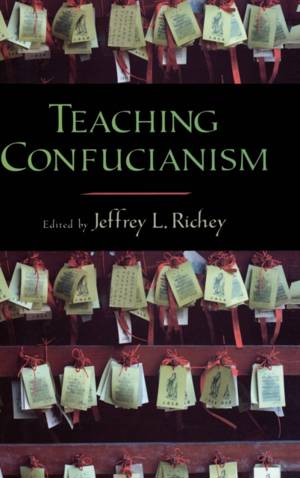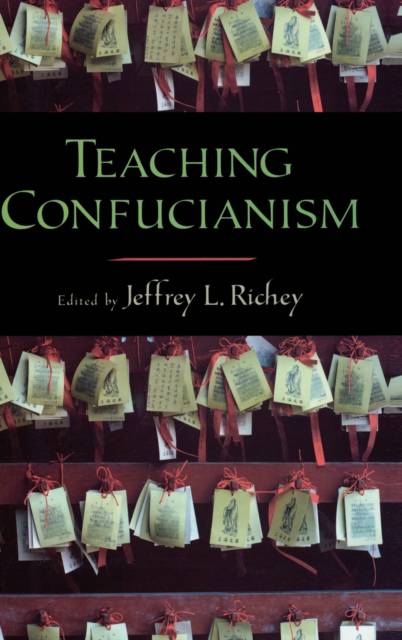
- Afhalen na 1 uur in een winkel met voorraad
- Gratis thuislevering in België vanaf € 30
- Ruim aanbod met 7 miljoen producten
- Afhalen na 1 uur in een winkel met voorraad
- Gratis thuislevering in België vanaf € 30
- Ruim aanbod met 7 miljoen producten
Zoeken
Omschrijving
Even the most casual observer of Chinese society is aware of the tremendous significance of Confucianism as a linchpin of both ancient and modern Chinese identity. Furthermore, the Confucian tradition has exercised enormous influence over the values and institutions of the other cultures of East Asia, an influence that continues to be important in the global Asian diaspora. If forecasters are correct in labeling the 21st century 'the Chinese century, ' teachers and scholars of religious studies and theology will be called upon to illuminate the history, character, and role of Confucianism as a religious tradition in Chinese and Chinese-influenced societies. The essays in this volume will address the specifically pedagogical challenges of introducing Confucian material to non-East Asian scholars and students. Informed by the latest scholarship as well as practical experience in the religious studies and theology classroom, the essays are attentive to the various settings within
which religious material is taught and sensitive to the needs of both experts in Confucian studies and those with no background in Asian studies who are charged with teaching these traditions. The authors represent all the arenas of Confucian studies, from the ancient to the modern. Courses involving Confucius and Confucianism have proliferated across the disciplinary map of the modern university. This volume will be an invaluable resource for instructors not only in religious studies departments and theological schools, but also teachers of world philosophy, non-Western philosophy, Asian studies, and world history.
which religious material is taught and sensitive to the needs of both experts in Confucian studies and those with no background in Asian studies who are charged with teaching these traditions. The authors represent all the arenas of Confucian studies, from the ancient to the modern. Courses involving Confucius and Confucianism have proliferated across the disciplinary map of the modern university. This volume will be an invaluable resource for instructors not only in religious studies departments and theological schools, but also teachers of world philosophy, non-Western philosophy, Asian studies, and world history.
Specificaties
Betrokkenen
- Uitgeverij:
Inhoud
- Aantal bladzijden:
- 248
- Taal:
- Engels
- Reeks:
Eigenschappen
- Productcode (EAN):
- 9780195311600
- Verschijningsdatum:
- 5/02/2008
- Uitvoering:
- Hardcover
- Formaat:
- Genaaid
- Afmetingen:
- 236 mm x 160 mm
- Gewicht:
- 541 g

Alleen bij Standaard Boekhandel
+ 97 punten op je klantenkaart van Standaard Boekhandel
Beoordelingen
We publiceren alleen reviews die voldoen aan de voorwaarden voor reviews. Bekijk onze voorwaarden voor reviews.










